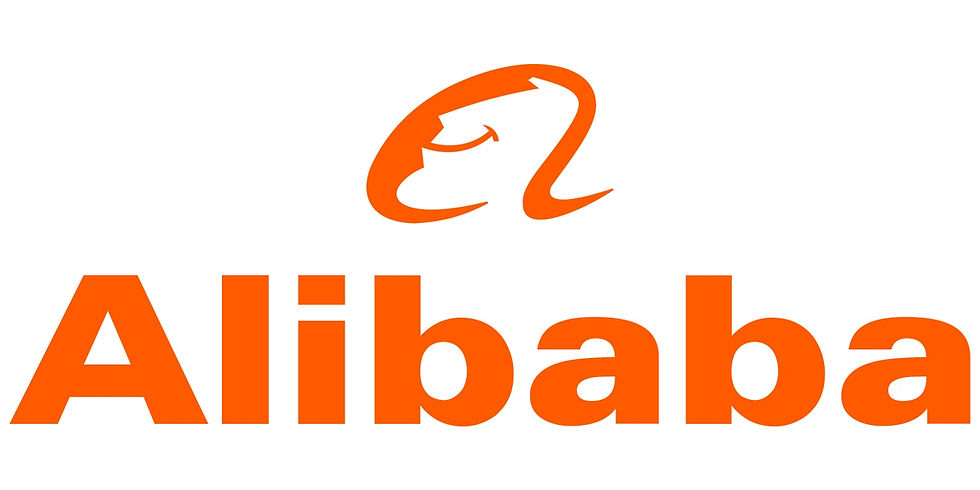China Digital Digest Weekly: Exploring the Chinese Digital Landscape
- ClickInsights

- Jan 3, 2023
- 4 min read
Hi folks, we are back with our weekly edition of China’s Digital Digest, wherein we would bring you weekly updates on China’s digital space. The report takes a quick glance at China’s complex and rapidly evolving social media landscape by providing updates on the latest happenings across the social media industry. Here are the major highlights of the report.
1. Li Ziqi, Once China’s Hottest Youtuber, Set for Return After Settling Legal Wrangle
Li Ziqi, a Chinese YouTuber who stopped uploading her popular lifestyle content more than a year ago amid a legal dispute with her agent, has settled the case and may soon return with new material.

The dispute surfaced last July when Li’s channel, followed by more than 17 million on YouTube and 7.7 million on China’s Bilibili video site, stopped posting new content. Between October 2021 and March 2022, Li and Weinian sued and counter-sued each other a total of five times but the reasons were not made public. In 2017, Li and Weinian created a joint venture named Sichuan Ziqi Culture Communication Co, with Li as a minority 49 percent owner, and the agent holding the majority stake.
2. TikTok Names Harvard-Educated Executive to Lead e-Commerce Product Development
TikTok is set to ramp up its online retail initiatives, as Harvard-educated executive Kevin Chen Xi will join the platform as head of e-commerce product and data, according to people who were briefed on the appointment.

In his new role, Chen will spearhead online retail product operations at TikTok and report to Bob Kang Zeyu, who serves as president of e-commerce at the platform. The new appointment reflects the increased focus of ByteDance in e-commerce as part of efforts to diversify revenue streams, months after the company revealed plans to expand that business to the US and Brazil.
3. US House Administration Arm Bans TikTok On Official Devices
Popular Chinese video app TikTok has been banned from all US House of Representatives-managed devices, according to the House’s administration arm, mimicking a law soon to go into effect banning the app from US government devices.

The app is considered “high risk due to a number of security issues”, the House’s Chief Administrative Officer (CAO) said in a message sent to all lawmakers and staff, and must be deleted from all devices managed by the House. The new rule follows a series of moves by US state governments to ban TikTok, owned by Beijing-based ByteDance, from government devices. So far, 19 states have at least partially blocked the app from state-managed devices over concerns that the Chinese government could use the app to track Americans and censor content.
4. Chinese Men’s Fashion Brand Popular with Celebrities Closes Shop Amid Weak Demand
Huashengji, a traditional Chinese fashion brand for men that wooed high-profile customers like billionaire Jack Ma, will close its shop on Alibaba Group Holding’s Tmall e-commerce platform, in a cautionary tale of retailing in China where consumption is weak and competition ruthless.

The Shanghai-based company, which promotes traditional Chinese-style clothing for men, said in a statement that it is “ending” its operations. The brand, which has 735,000 followers on Tmall, is conducting a final sales clearance until December 31, offering a 50 per cent discount for some products. One popular item, a black down jacket, was priced at 2,500 yuan (US$358) after the discount.
The brand, which is marketed as Husenji in English, was popular with celebrities and the wealthy. Ma, the founder of Alibaba, was seen wearing the brand, according to social media screenshots in 2014. Alibaba owns the South China Morning Post.
5. JD.Com Founder Richard Liu Criticises e-Commerce Executives for Poor Performance
Richard Liu Qiangdong, the billionaire founder of JD.com, has ended a low-profile period and stepped forward to lecture executives at the e-commerce giant, threatening to fire underperformers as business growth slows.

In two video conference meetings across November and December, Liu criticized the company’s executives and, without naming any specific individuals, described some as “liars”, according to people briefed on the meetings. Liu spoke from Hong Kong after settling a civil case involving a rape allegation against him in the US in early October.
6. Alibaba Replaces CTO, Appoints Group CEO as Cloud Unit Head
In a management reshuffle, Alibaba Group Holdings has appointed Wu Zeming as CTO, replacing Cheng Li. Wu, who was made partner at Alibaba in 2017, will retain his other role at the firm as CTO of local services. Cheng will continue as an advisor in technology.

Daniel Zhang Yong, Alibaba’s chairman and CEO, has also been appointed president of Alibaba Cloud Intelligence, as well as the firm’s enterprise communications firm, DingTalk. Meanwhile, Jeff Zhang Jianfeng has stepped down as cloud business chief but will continue to lead the science and tech research unit Damo Academy, IoT capability, as well as Alibaba’s chip development division, T-Head.
7. Tesla to Unveil Prices of Model S/X Plaid Models in China on Jan 6
Tesla announced at an automotive expo in Guangzhou that the prices of its Model S Plaid and Model X Plaid in the Chinese market will be unveiled on January 6, 2023. The new cars will be delivered in the first half of 2023. The leading electric vehicle company also announced that it has now built 10,000 supercharging piles in China.

Tesla’s Model S/X Plaid models were first released in January 2021 and can be regarded as high-performance versions of the standard Tesla Model S/X. Currently, this series of vehicles are produced at the company’s US factories.
8. China Launches First National-Level Trading Platform For Digital Assets
China launched its first national-level secondary trading platform for digital assets on the first day of 2023, aiming to support the trade of intellectual property, digital copyrights, and digital collections.

As the country's digital economy has witnessed rapid development in recent years, digital assets have emerged, backed by information technology including blockchain as well as Web 3.0. The newly established platform will enhance the regulation of virtual trade, and aims to boost digital innovation as well as promote the healthy development of the digital trade market, experts said.
Wrapping Up
The vast and diverse nature of the Chinese Social Media space makes it incredibly challenging to keep a tab on the rapid developments taking place. However, China’s Digital Digest brings you all the latest updates from there to keep you abreast of all the evolving trends.
To delve deeper into the findings of the December report, click here.



google 优化 seo技术+jingcheng-seo.com+秒收录;
Fortune Tiger Fortune Tiger;
Fortune Tiger Fortune Tiger;
Fortune Tiger Fortune Tiger;
Fortune Tiger Slots Fortune…
站群/ 站群
gamesimes gamesimes;
03topgame 03topgame
EPS Machine EPS Cutting…
EPS Machine EPS and…
EPP Machine EPP Shape…
Fortune Tiger Fortune Tiger;
EPS Machine EPS and…
betwin betwin;
777 777;
slots slots;
Fortune Tiger Fortune Tiger;